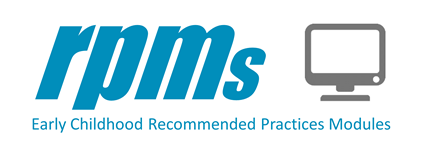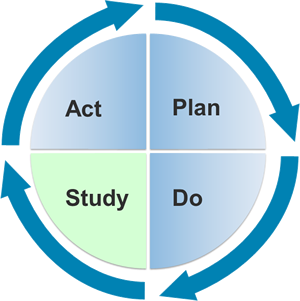Study
|
Now that you have practiced applying assessment practices, let’s take a step back and consider why and how you can gather and use the information to determine the following: |
|
1) Did you implement assessment practices the way they were intended?
You can use the following checklists as a self-reflection tool or with a mentor (e.g., program director, program coach, faculty), or with a larger team to discuss and reflect on the extent to which you implemented strategies that are in line with the DEC Recommended Practices on assessment.
- Informed Clinical Reasoning Checklist
- Engaging Families as Partners in Their Child's Assessment Checklist
- Authentic Child Assessment Practices Checklist
- Building on Child Strengths Practices Checklist
2) How do you know if the change has resulted in an improvement in child outcomes?
Gathering information over multiple points of time will help you determine if your changes in practice have promoted positive child outcomes. You may want to consider how much information needs to be gathered and by whom. You may also want to decide specific assessment tools or methods (observations, checklists, and parent interviews) that you will want to use to evaluate child outcomes.
3) What worked well and what didn’t? What changes can you make to improve using instructional practices?
Review all the assessment information you have gathered and reflect and note what worked well and what didn’t. What areas of your practice can you improve to bring about better child outcomes? You can work with your mentor or with the child’s family to make changes to your practice. You may use the following tools to reflect on your practice:

